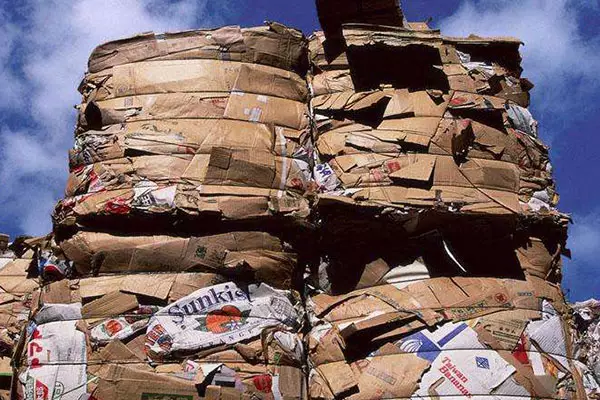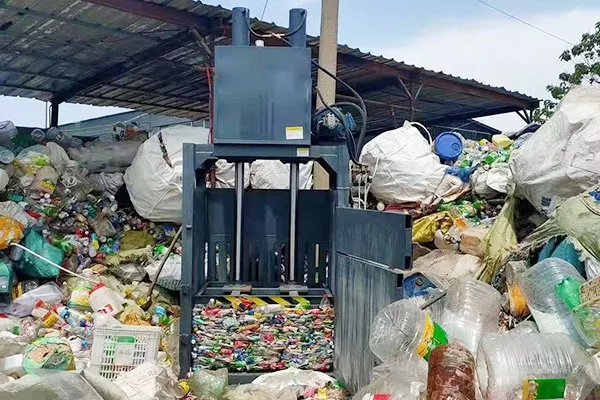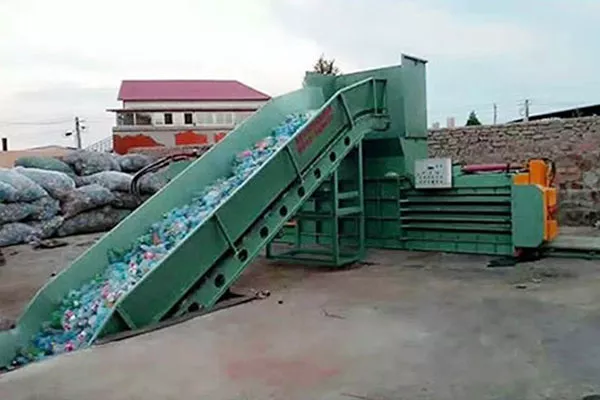Table of Contents
To do a waste paper baling station, first, you need to consider your business model, the local waste paper recycling volume (including waste cartons, пластикові відходи, тощо), and the local competition in the same industry. According to the waste paper recycling market in previous years, make an estimated judgment on the current or future market. What do you need to prepare and pay attention to operating a waste paper baling plant?

Factory address selection for waste paper baler:
Waste paper recycling plants choose a site, whether new, easy to transform or lease. Operating a good recycling plant can not be separated from the local traffic conditions; the commodity Site selection and planning are appropriate and directly affects the plant infrastructure investment, plant construction speed, and the economic and social benefits of the enterprise later.
The point of factory site selection for waste paper baler
Conform to the local and national policies and do well in legal risk prevention
The site of waste baler plant and government policy contrary to the practice will make you lose the initiative in the subsequent operation. If you do so, you have to ask God to bless you.
Good and legal establishment of paper baler factories to adapt to the long-term development of the local and urban construction layout. It is better to apply for local government policy allocation. If you don't have this condition, try to consult with friends who know the law or professional lawyers to do a good job of preventing legal risks. You should know that demolition may ruin several months of your business profits.
Understand the local waste paper market's capacity and composition, especially domestic and production waste paper.
According to your market, understand the composition of waste paper. For example, your urban area has a population of 1 million, and the waste paper recycling volume is about 1,000 tons a day, with 0.5 pounds of waste paper generated per capita. And the urban area is dominated by household waste paper, especially supermarket paper. Find out when the low and high seasons are for waste paper production.
Understand the traffic situation of the baler machine factory
Measure the traffic distance with the paper mill, estimated transportation costs, and delivery is convenient traffic and other issues. Water and electricity supply is also convenient when the waste paper baler work can meet the demand.
Factory planning and design for waste paper baling machine
Take an example of a waste paper recycling plant with a daily processing capacity of 60 tons.
Plant construction planning for waste baler machine
Baler machine Plant area: according to the number of goods received, calculated by 60 tons/day, the area of 1600-3000 square feet or more, preferably more than 2000 square feet; if you are a tycoon, please feel free.
Baler machine Plant height: if conditions allow, it is best to build a standard steel structure plant with a height of 9 meters or more, with heat insulation and ventilation. The minimum requirement should be more than 6m8.
Road requirements of baler machine factory: the road in the factory requires solid materials, generally cement roads, smooth and orderly to avoid dust generation.
Note: The electronic weighbridge and baler machine installation needs to dig a groove according to different size specifications, and the placement position needs to dig the corresponding groove.
Production workshop planning for paper baler
According to the baler site planning, the general recycling plant is divided into an operation area, unloading area, storage area, settlement area, and office space.
Transportation planning for waste paper baler
Baler machine transportation planning is the planning of logistics and human flow. The main content includes the planning of transport routes and the planning of the garage. According to the planning principles, the transport road requires a smooth and orderly cement road or asphalt road, and to avoid road blockage; it is generally set as a circular road. Secondly, the planning of the garage is reasonably arranged according to the topography of the factory.
Management facilities and living facilities planning of waste paper recycling plant
Management facilities and living facilities planning are different from the production area. Generally speaking, when planning management facilities and living facilities, more attention is paid to the staff's quality of life. Management facilities include office buildings and settlement centres; living facilities include dormitories, canteens, тощо, as these areas are related to the physical and mental health of the staff. The primary requirement is to avoid pollution and ensure ventilation and light.
Which machines to choose for waste paper recycling?
Paper baling machine
For a waste paper baler factory, the baling machine is a must because of the large pieces of loose waste paper, large volume, transportation inconvenience, the need to pack through the baler machine, and a lot of savings in transportation costs.
There are mainly two kinds of hydraulic paper press machines on the market: vertical waste paper balers і horizontal waste paper balers. You can choose the baler machine and supplier according to the size of the baling plant and the cost budget, choose a different supplier, the right one for you is the best.
Special Note: As the hydraulic baler machine belongs to the large production equipment, in general, the waste paper baler suppliers will not have stock, so there will be a cycle in the procurement; it is recommended that you arrange the procurement time in advance.
vertical waste paper baler machine
horizontal waste paper baler
Forklift
There are many different types of forklifts on the market; for waste paper baler machines, the more commonly used is the diesel clamping forklift.
Loadometer
The standard configuration of the odometer is mainly composed of three major parts: load-bearing force transmission mechanism (scale body), high-precision load cell, and weighing display instrument, which can complete the basic weighing function of the floor scale, but also according to the requirements of different users, optional printer, large screen display, computer management system.
Commonly used specifications are width 3~3.4m, length 6~24m, and weighing range 30T~200T. The packing factory selects the odometer according to the size of the site and truck model and generally installs 6-10m truck scales. For easy transportation odometer generally chooses the supplier with close distance, which is convenient for installation and after-sales service.
Truck
Considering the convenience of transportation, and traffic weight limit, the commonly used 5 tons or less minivan.
Monitoring system
Monitoring facilities are sometimes necessary.
Office equipment such as computers
Reasonable arrangement of staff working hours
Develop a regular safety checklist to ensure the normal operation of the waste paper baler.
- Production workshop inspection content.
- The floor is clean; there is no clutter, the channel is clear, no disorderly placement.
- Material stacking identification distinction, clear at a glance, neat and orderly.
- Daily inspection and maintenance of baling machines and related equipment and records.
- Waste is marked or centralized.
- The water, electricity, fan and lighting facilities are working normally, whether the water, electricity and fan are turned off after work.
- Whether the garbage is placed at fixed points and whether the garbage is cleaned and transported away in time.
Every inspection is recorded, and the failure records of the waste paper baler workshop are listed.
Designate the management system of the baler machine workshop.
Classification of waste paper
Domestic waste paper is divided into eight categories: коробки для сміття, waste newspapers, waste coated paper, Макулатура, waste kraft paper, відходи картону, waste books and magazines, and special waste paper, which are subdivided into one, two, three and four grades according to the quality of miscellaneous, to guide the recycling, quality inspection, procurement and sales of waste paper.
But in the actual business process, there is no unified standard for waste paper classification; as long as the amount of single category paper is large enough, there is a profit margin that can be subdivided; the higher the purity, the greater the value.
Now the vast majority of packaging boxes on the market are yellow board paper, and thus the vast majority of recycling is also yellow board paper. The A-B-C-D grade here also refers to the grade of yellow board paper. With yellow board paper as the first, according to the source of recycling channels, the industry is commonly divided into factory paper, supermarket paper, and recycled paper. Also, the impurity composition is subdivided:
- More than 90% for A grade
- More than 70% for B grade
- More than 50% for C grade
- Less than 50% for the D grade
In addition to yellow board paper, there are books, newspapers, trademark paper, kraft paper, grey board paper, office paper, тощо.


